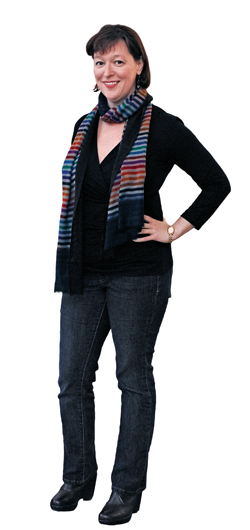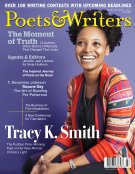As the Bread Loaf Writers’ Conference at Middlebury College in Ripton, Vermont, celebrates its ninetieth anniversary this year, assistant director Jennifer Grotz is launching a new endeavor: the Bread Loaf Translators’ Conference. The inaugural event, which will be held from June 1 to June 7, and is open to translators of poetry, fiction, and creative nonfiction, is one of the few conferences in the United States dedicated to literary translation. Grotz, who will direct and teach at the annual gathering, is also director of literary translation studies at the University of Rochester. As she prepares to launch the conference (admissions are made on a rolling basis until March 15), Grotz spoke about her goals for the new program and what it means to be a translator in today’s literary community.
 How did this conference come to be?
How did this conference come to be?
It was an idea that Michael Collier [the director of the Bread Loaf Writers’ Conference] and I had been thinking about for several years. We finally decided to go for it because we really believe in its purpose, which is to support literary translators. Literary translation doesn’t get thought about enough in this country, and we don’t provide adequate training. I also think we don’t treat translators as creative writers, which they really are. One of my goals with the conference is to foster literary communities of translators, but another is to blend the translating and writing communities a little more.
What shape will it take?
I want the conference to be as similar to Bread Loaf as possible, so the center of it will be workshops, but there will also be classes and lectures and readings. We’re offering workshops in prose and poetry, and one mixed-genre workshop for people doing special projects that are hard to place—or for those who want to work with Bill Johnston, who’s fantastic. I’ll be teaching an intro class to expand people’s awareness of translation and to talk about how to read translation and how to get started in it, because a lot of people would love to translate; they just don’t have the language skills necessary, or they’re looking for a project and they don’t have a manuscript to submit yet.
What does it mean to be part of the community of literary translators?
I think that for literature to flourish we need to take care of it, and the way we do that with poetry or fiction is that we translate, we write reviews, we edit, and we tend to the community. That’s exactly the same for translating. But we also need to help people read translations. It’s so mind-boggling to me how many folks don’t keep in mind that things are even translated. People say, “I don’t read translations because I don’t trust them or I don’t get them.” But if you think about that, that means you can’t read the Bible or the Iliad. Translation is inescapable—any act of artistic communication has everything to do with translating—but we don’t talk about it, and I think that’s because we really don’t know how or feel insecure. Being part of this community means being aware of that and trying to break that down.
Do you see the act of translation as relevant to the current political climate?
Absolutely. Translation is the way we understand other cultures. You would think that in our country, which has a blend of all these traditions and people, translation would flourish compared to other nations—but it really doesn’t. But I do think we’re on the way. One of the reasons that I decided to launch the conference now is that there is more interest than there has been, and I think [translation is] finding its way as a discipline. This is a really exciting opportunity to get in on the next wave of translators. More and more translators are going to the AWP Conference and more translation workshops are being offered—even in MFA programs—as there should be, and so I do think there’s something in the air. I hope I’m right.
Cat Richardson is the managing editor of Bodega Magazine and a poetry editor at Phantom Limb Press. Her work has appeared in Four Way Review, Tin House, Sonora Review, and elsewhere.








